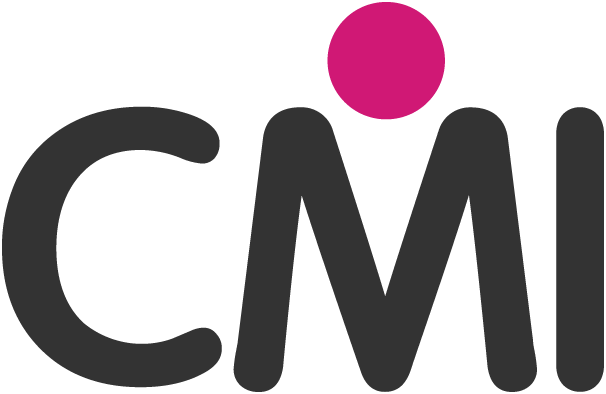HR leaders have an 'EDI blindspot', new research finds
Tuesday 17 September 2024Research reveals large gap between what HR leaders think is working and what employees are saying when it comes to equality, diversity, and inclusion
London – A new report from the Chartered Management Institute (CMI) has found that senior leaders at UK organisations have an “equality, diversity and inclusion (EDI) blindspot,” with big gaps between what HR decision-makers think is working to improve inclusivity and workplace culture, versus how employees see it.
The research also found that trained and supportive managers who know what they’re doing play a bigger role in creating inclusive workplaces than a host of popular initiatives, including a positive workplace culture, flexible working arrangements and specific diversity and inclusion programmes.
The report, led by Sir Trevor Phillips OBE, the former head of the Equalities and Human Rights Commission, surveyed over 500 HR decision-makers and 1,000 employees with no management responsibilities to better understand the current state of workplace inclusion.
The findings signal a ‘tick-box’ approach to workplace inclusion policies at many organisations, with key differences emerging in companies that viewed improving workplace inclusion and culture as being ‘business-critical’.
The research comes as US political and corporate backlash against EDI (often called DEI in America) has seen many organisations questioning the value and effectiveness of their programmes in this area.
Other findings include:
- A dramatic gap between HR leaders and employees as to whether or not they believe senior management identify and deal with inappropriate behaviour in a timely manner (78% vs. 57%)
- Organisations that said they take a “business-critical” view of implementing inclusion policies reported better results across the board from both employees and HR leaders when it came to dealing with bad behaviour, attracting talent, promoting the best people and addressing staff underperformance.
- Those same employers who adopted the “business-critical” approach reported significantly higher job satisfaction among employees than the employers that do not take that view (79% vs 52%).
- Nearly half of HR leaders (48%) and one in three employees (34%) report they’ve personally seen discrimination and microaggression in their own organisations.
- Employees who were aware that their boss had received management training were significantly more likely to feel supported (87% vs 38%) and fairly treated (90% vs 47%).
- Male employees are significantly more likely to say that their organisation is placing too much emphasis on EDI (13%) compared to women (3%).
- Men are also more likely than women to feel that their voice is heard and acted upon (56% vs 45%).
- Private sector HR decision-makers are significantly more likely than those in public-sector to say they are using pay gap data to address training needs (55% vs 37%) and barriers to progression (55% vs 42%).
Sir Trevor Phillips said:
What we are seeing here is a chasm between a lot of the activity that HR leaders are putting their efforts into and the reality of how it is landing with people in their day-to-day working lives.
It’s time for managers and leaders to align inclusion efforts, whatever form they might take, with a truly ‘business-critical’ approach. This report tells us that those organisations will deliver better business success, attract top talent, address underperformance and foster a positive workplace culture.
Rather than viewing EDI as a branding exercise, managers have a responsibility to their teams to become great managers in the round rather than just trying to apply a quick-fix to meet EDI objectives. Great managers are inclusive and much more besides. But great managers are made, not born; training is essential. We cannot overstate the impact of well-trained managers on workplace inclusion.
Ann Francke OBE, CEO of the Chartered Management Institute, said:
“It’s really quite simple: this research suggests too much talk and too little action when it comes to advancing EDI at work. We call it a ‘say-do gap’.
“This report from CMI’s Everyone Economy Committee of experts shows that there is a clear line to be drawn between those employers that weave inclusion into their everyday work – and into the ways that managers are trained and developed – and their business outcomes, and those that do not.
“We already know that 82% of people promoted into management roles do not have any prior management training. This is the latest piece of evidence to make the case for a stronger commitment across both the public sector and private industry to make that investment in training their future leaders.”
Notes to editors
The research was conducted in partnership with Savanta, a leading market research consultancy. The organisational survey was in the field from 17 November until 21 November and was fully completed by 529 HR decision-makers in UK organisations. Respondents were all from organisations with 50 or more employees and organisations were representative by region, size and industry. The employees survey was in the field from 17 November 2023 until 27 November 2023 and was fully completed by 1,021 UK employees. Respondents were all from organisations with 50 or more employees and representative by region, size and industry.
About the Chartered Management Institute (CMI):
The Chartered Management Institute is the professional body for managers and leaders. We have a membership community of over 200,000 aspiring and practising managers and more than 150,000 people are currently studying on one of our management and leadership programmes. Our Royal Charter defines our charitable mission as increasing the number and standard of professionally qualified managers and leaders.
